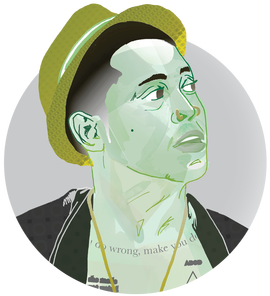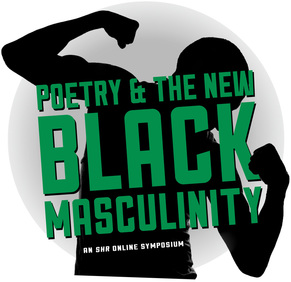|
Vertical Divider
In the workshop I facilitate for the Givens Foundation, a Minnesota-based organization supporting emerging adult black writers, we spend a lot of time asking questions about the work of writing. We try to get down in a deep investigation about what it means to be a writer and what our writing does in the world. Michael, a lawyer by day and a poet always, asks about the balance between writing about the joyful moments in life and the heavier work of writing about trauma, particularly around writing about racism and how it functions, suffocates, dominates, governs in America. I feel you, Michael. I’ve seen my work reduced to simply being about black death as opposed to being a catalog about a particular black life, which is not devoid of the death of my people near, far, communal, or familial. I feel you, Michael. I’m happy, and then the news happens. I’m happy, and then boy shot/woman shot/man shot/black skin pierced with metal or choked out or however it happens that time. I feel you, Michael. I want to write just about the way water falls from my grandma’s lip when she smiles and drinks at the same time or all the things my homeboy looks like with his lookin' ass—but again and again, we are called to the pulpit of poetry to eulogize and galvanize, to pen sermon after sermon, poem after poem about the murder of our people at the hands of police and vigilantes, at our own hands, at their own hands. I want to be fierce in my pursuit of black joy, to forget what wicked things lurk behind joy’s shoulder. Maybe that’s what makes Lucille Clifton’s “won’t you celebrate with me” as anthemic as it is. “come celebrate / with me that everyday / something has tried to kill me / and has failed.” To be black and joyous means to understand something about survival, to know what has daily missed you, grazed your flesh, chosen instead the blood of the one next to you. It means to know how quickly the party can turn into a wake, the thin difference between a traffic stop and an execution. It means celebrating even in the midst of mourning (see: the second line, the repast, the rap song at my friends home-going ceremony, the calling a funeral a “home-going). It means living with the constant fear of how easy your joy can turn into your struggle to remember joy. I imagine that people of many marginalized backgrounds, particularly those oppressed through the many methods of violence, already know something of this, but I only know it in a black way, in the peace and horror of my grandma’s hum. I want to un-tinge black joy, to remove what haunts the corners of our happiness. I want to build a world where black people are not prospering “in spite of” something. Who has formula to end the hungry, greed-fueled reign of this world while simultaneously imagining and building one not dependent on the suffering of brown men and women around the world? How can we build that world when white folks are out here thinking that the “racism” of challenging whiteness, its faculties and facilitators (spoiler alert: it’s not racism), is equal to that of bodies left in the street for to hot-rot for hours, to women murdered from the crime of seeking help? How can we build that world when racism has turned too many black and brown people against themselves—how easily their own hands become a gun? But there are still dances to dance, children to make faces at for the sake of their tiny, mighty laughs, grandmas to rub feet for, homies to bring the bourbon, and, even if only for a moment, to blur the bright beast of the world. How—someone, please—how do we love the jaws of this great (white shark) nation away from what in our lives is tender and fragile and necessary? Dear lord, I have looked at the children at the park outside my bedroom window, stumpy and fast and sweaty and glistening like onyx in the sun, and I don’t have the strength to tell them about their skin. How long must we tell our children what waits to imprison and end them simply because they are our children? How long can a black child survive being a child? Sweet lord, I want our heaven now! I want what too many have dreamed of while heading to that long sleep. I want to no longer be called to the pulpit to deliver the eulogy, to ready the congregation for what comes at us with fire and bullet and legislation. I want to stand and say, “Ain’t God Good?” and not waver in my own response. How? It’s a spell I’m not sure poetry is big enough to handle. Reader, won’t you dream with me? Won’t you help make this world our poem? Won’t you build with me a room big enough for joy, where what seeks to end us isn’t simply not invited but instead ceases to exist? Do you have the tools? Do you know the tools we have yet to invent? |
|
CURRENT ISSUE
|
CONTACT
|
DEPARTMENT OF ENGLISH
|




